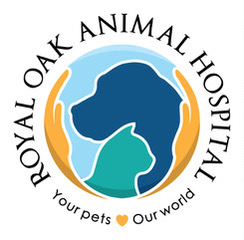Library
-
When families shelter together for extended periods, as occurred during the COVID-19 pandemic, pets enjoy nearly constant companionship. As people resume an active lifestyle, pets are suddenly faced with being alone. They may experience distress related to this loss of companionship. Treatment is discussed, such as independence training and an incremental program of safe departures. If your pet shows continued signs of distress related to being alone, it is important to seek professional help to prevent escalation.
-
First Aid for Dogs - Shock, Rescue Breathing, and CPR
Las urgencias pueden tener presentaciones muy diversas: atropellos, mordiscos, quemaduras, golpes de calor, envenenamientos o pérdidas de conciencia por mencionar sólo algunas.
-
The pro-opiomelanocortin (POMC) gene, if mutated, can contribute to increased body fat and body weight and increased food motivation in affected dogs. At this time, this gene mutation has only been found in the Labrador Retriever and Flat-coated Retriever and affects the majority of those working as service dogs. This handout explains how the POMC gene mutation was discovered, how it impacts affected dogs, and how you can support your dog if affected.
-
Behavior Counseling: Senior Pet Behavior Problems
No es raro que aparezcan problemas de comportamiento en los animales de más edad. Muchas de las causas son las mismas que podemos encontrar en los animales jóvenes, ya que los cambios en la casa o en el ambiente pueden producir problemas a cualquier edad.
-
Dog Behavior Problems: House Soiling
Hay muchas razones por las que un perro puede ensuciar la casa con orina o heces. Determinar la razón específica es esencial para desarrollar un programa de tratamiento eficaz.
-
Many dogs love to get out to socialize and exercise with their canine friends and dog parks are their go-to spots for getting together. Proper etiquette, from both you and your pup, will allow everyone to enjoy the park safely and courteously.
-
No hyperactive ankle-biter, the Pug has a stable and noble way, befitting a much larger dog - and a giant personality to match.
-
A barking mop on springs, the Puli is a perky and personable dog that gets lots of second looks for his Rastafarian locks.
-
To prevent undesirable behavior, the first step is to establish a daily routine that answers all your puppy's needs such as walks and exercise, social bonding, play and training, feeding, and sleeping. The rule of thumb for dog training is set the dog up for success.
-
A successful life with a family dog starts with great training for your puppy. Planning to set puppies up for success, learning how to use management, positive reinforcement, luring, capturing, and shaping will help owners train their puppies successfully. Positive puppy training and socialization classes are also beneficial for healthy puppies over eight weeks of age.


